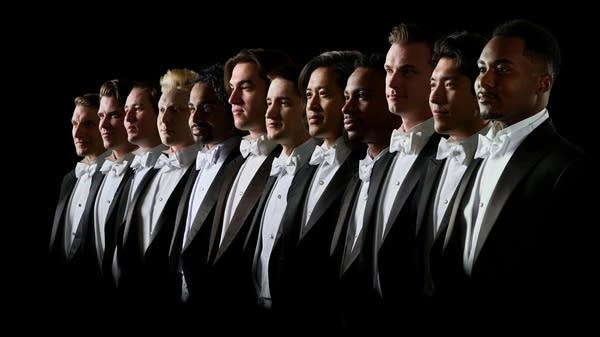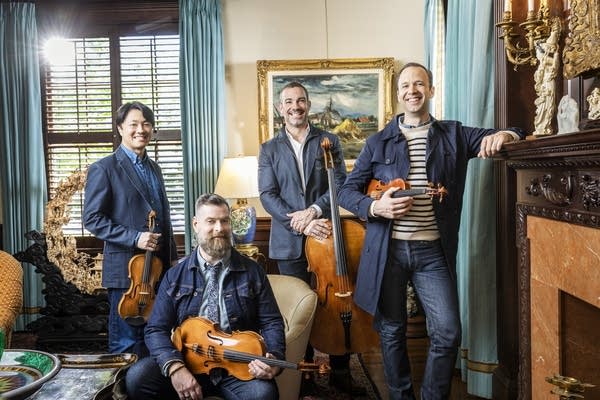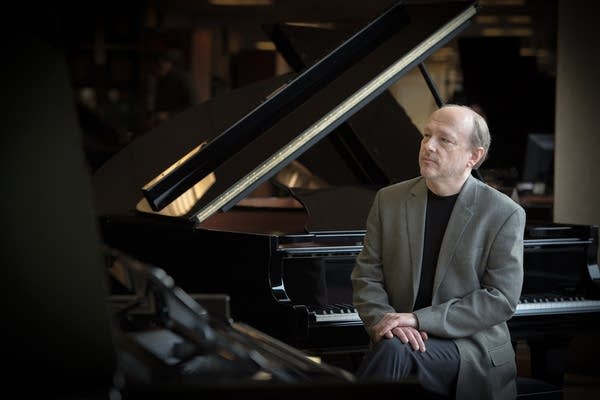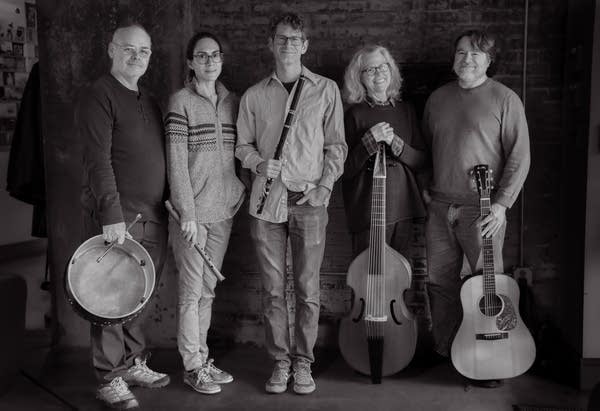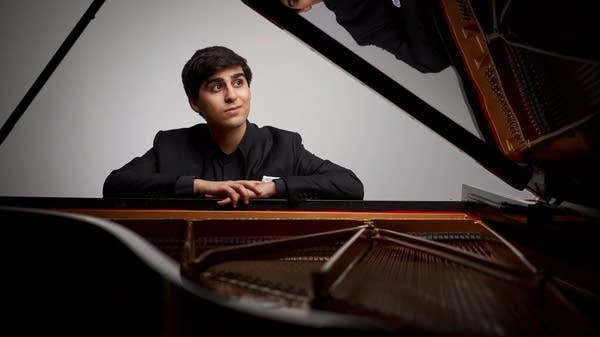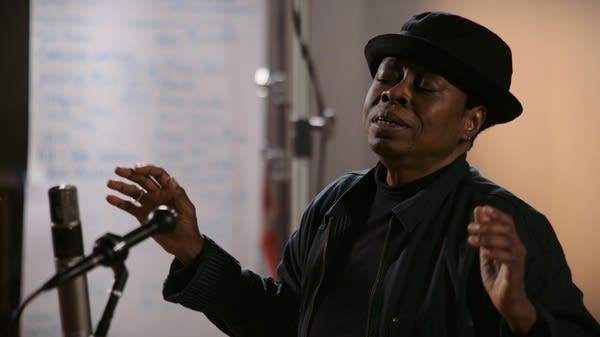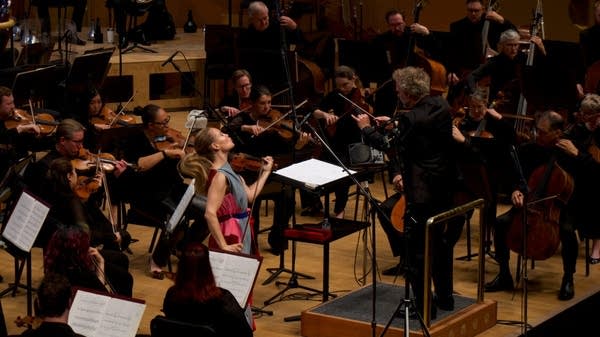
It all started with one lone voice.
"That's right," says choral composer Eric Whitacre. "This girl from Long Island named Britlin Losee, she just put on a recording of 'Sleep,' and sang the soprano part over it, and she sent me this sweet little message at the beginning of it. 'Hello, Mr. Whitacre, I'd like you to see this,' and she posted it on YouTube and then someone sent it to me saying, 'Have you seen this?'"
That was the spark that lit a fire under Eric Whitacre. Last year, he created his first virtual choir, which earned more than a million hits on YouTube. This year, he's going to attempt to beat the record for the world's largest online choir by soliciting more than 900 singers to record "Sleep" -- one of his most popular songs, and one which appears on his latest recording. "I really can't imagine this kind of career, or maybe any career in the arts now, without a web presence," Whitacre testifies. And with some 40,000 fans on his Facebook page, Whitacre can spread the word quickly about his latest projects. In fact, those 40,000 fans were the first to know about his latest release, "Light and Gold."
Whitacre's new recording features the Eric Whitacre Singers, who are joined by another British ensemble, Laudibus. "To say it's a privilege and honor to make music with these people is an understatement," Whitacre explains. "I've never worked with singers who are this good!" Whitacre says it was a surreal experience to conduct his longtime heroes, the King's Singers who join his chorus on a piece titled "The Stolen Child." This song is based on a poem by Yeats which Whitacre chose to mark the 25th anniversary of the National Youth Choir of Great Britain and the 40th anniversary of the King's Singers. "It just seemed perfect to me not only because it was by Yeats, but also because there's a beautiful drama in it. The refrain is, 'Come away, O human child! to the waters in the wild,' and it's these woodland fairies who are seducing away these children to this magical make-believe place. And I thought it would be perfect to have the King's Singers playing these mythical woodland fairies and sort of calling out seductively to the children, who would be the National Youth Choir."
While Whitacre is proud of every track on his new release, "Light and Gold," he does have a personal favorite. "It's difficult for me ever to hear it just as pure music," Whitacre admits, "but there are these five measures in this piece, 'A Boy and a Girl,' that I think are just perfect. It's not that I feel proud of them, I just feel that the text is so delicate and exquisite and the music that seemed to blossom from those words matches perfectly what the poet Octavio Paz was saying. So there's a small section in 'A Boy and a Girl' that I suppose I wouldn't mind being played at my funeral. So the final stanza of the poem is stretched out underground 'a boy and a girl saying nothing, never kissing, giving silence for silence.' And it's the words 'never kissing' that somehow, it's just--every time I hear it, I could just pass out from the beauty of the marriage of the words and the music."
So what is it about Whitacre's music that has mesmerized so many? "Yeah, it was only a couple of years ago that someone pointed out to me that I'm the cluster guy ... I certainly wasn't doing it on purpose. A lot of my music has these tight, close harmonies, and so maybe that's a sort of trademark sound. I feel, looking at my whole catalog, that there's a lot of variation, that sometimes I write in a more contrapuntal or Renaissance style, sometimes I write in a very rhythmic contemporary style, sometimes I write these slow, static breathing pieces. I'd like to think that the one thing that unites all of my pieces is the choice of really, really great poetry. For me, I work very hard at finding poems that to me are filled with music and then my job as a composer is to just sort of get out of the way and do what the poet is telling me to do." Some of that great poetry came from his wife, Grammy Award-winning soprano Hila Plitmann, who helped Whitacre write his "Five Hebrew Love Songs." "These are the pieces I wrote way back in 1995 when my wife (now) and I were dating. We were both students at the Juilliard School. We were invited to Germany to give a concert and so I wrote this set of songs and asked her to write five Hebrew postcards. She wrote the poetry for it." In 2000 Whitacre arranged these postcards for string quartet and mixed chorus. It's that version of the "Five Hebrew Love Songs" that appears on his new release.
Eric Whitacre's new release, "Light and Gold," marks the first time the composer is both recording and conducting his own music. Whitacre says now when he listens back to this recording and hears himself conducting his own works, it sounds just the way he was hearing the music in his head. And what gorgeous music he has swimming in his head.
---
For the full interview with Eric Whitacre, click to the right.
Love the music?
Show your support by making a gift to YourClassical.
Each day, we’re here for you with thoughtful streams that set the tone for your day – not to mention the stories and programs that inspire you to new discovery and help you explore the music you love.
YourClassical is available for free, because we are listener-supported public media. Take a moment to make your gift today.
Your Donation
About New Classical Tracks®
Host Julie Amacher provides an in-depth exploration of a new classical music release each week.
Subscribe on Apple Podcasts, TuneIn, Radio Public, or RSS.





